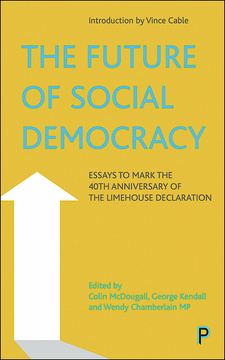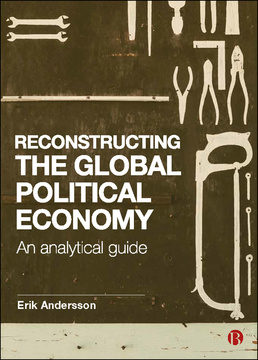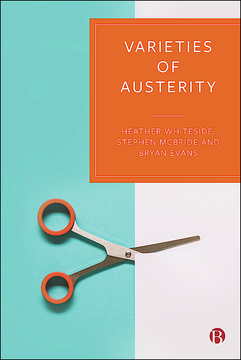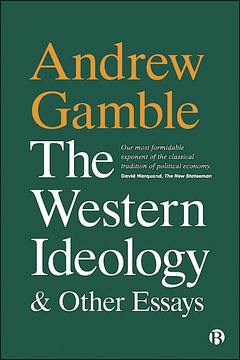Published
Dec 12, 2023Page count
236 pagesISBN
978-1529225297Dimensions
234 x 156 mmImprint
Bristol University PressPublished
Jun 9, 2022Page count
236 pagesISBN
978-1529225280Dimensions
234 x 156 mmImprint
Bristol University PressPublished
Jun 9, 2022Page count
236 pagesISBN
978-1529225303Dimensions
234 x 156 mmImprint
Bristol University PressPublished
Jun 9, 2022Page count
236 pagesISBN
978-1529225303Dimensions
234 x 156 mmImprint
Bristol University PressIn the media
Saving Liberalism in The Enlightened Economist
Liberal democracies are under increasing pressure. Growing discontent about inequality, lack of political participation and identity have rekindled populism and a shift away from liberal values.
This book argues that liberalism’s reliance on a utilitarian policy framework has resulted in increased concentrations of power, restricting freedom and equality. It examines five key areas of public policy: monetary policy, private property and liability, the structure of the state, product markets and labour markets.
Drawing on the German ordoliberal tradition and its founding principle of the dispersal of power, the book proposes an alternative public policy framework. In doing so, it offers a practical pathway to realign policy making with liberal ideas.
“I liked Thomas Aubrey’s short book. It could alternatively be called, Confronting the weaknesses of the Anglo-Saxon economic model. But it does this in a thoughtful way, contrasting the utilitarian tradition of UK/US economic policy with (West) Germany and the “underlying ordoliberal principle of power dispersion.”” The Enlightened Economist
“Thomas Aubrey is one of the most perceptive thinkers both about the limits of classical liberalism and how we might breathe new life into liberal values in order to solve today's most pressing public policy challenges.” Patrick Diamond, Queen Mary University of London
“This book is very good at highlighting the current – significant – shortcomings of the liberal economic model as I have now believed for more than a decade, and it presents evidence and articulates the case much better than I have so far found. Trying to get more countries with larger populations to be more Scandinavian would seem to be a helpful path for humanity.” Jim O’Neill, Ex Commercial Secretary to the UK Treasury
“Caught between the right to happiness and the freedom to avoid starvation, liberalism appears crushed by the weight of its own contradictions. This excellent book promotes its fundamental values against authoritarian detractors. “ Werner Bonefeld, University of York
Thomas Aubrey is the founder of Credit Capital Advisory. Previous books include Profiting from Monetary Policy (Palgrave Macmillan 2012) and Prediction Markets: The End of the Regulatory State? (European Policy Forum 2007) co-authored with Professor Frank Vibert.
Chapter 1: Introduction
Chapter 2: The Liberal Order and Its Utilitarian Foundation
Chapter 3 the Rise of Ordo
Chapter 4 the West German Experiment and the Decline of Ordo
Chapter 5 Monetary Policy: The Illiberal Practice of Inflation Targeting
Chapter 6 Liability and Private Property: Confronting the Perfect Externalising Machine
Chapter 7 Structure of the State: Community and Vitalpolitik
Chapter 8 Labour Markets: Continuous Training and Flexibility
Chapter 9 Product Markets: Enforcing the Price Mechanism
Chapter 10: Confronting Liberalism’s Fatal Flaw
Appendix: Methodology Used for Measuring the Dispersal of Public and Private Power by Policy Field













